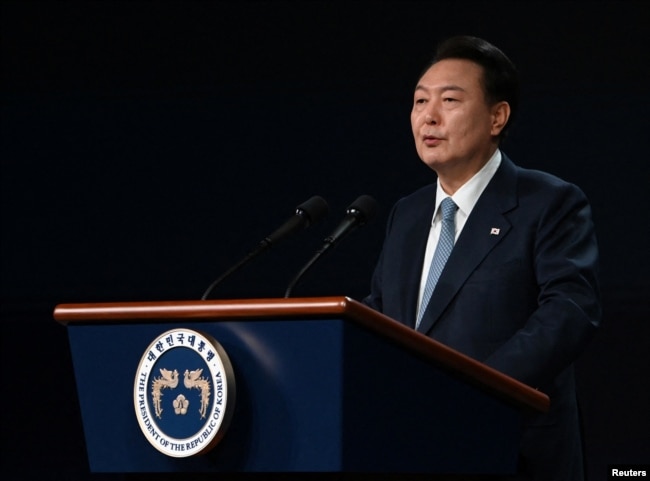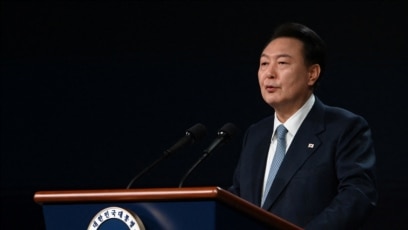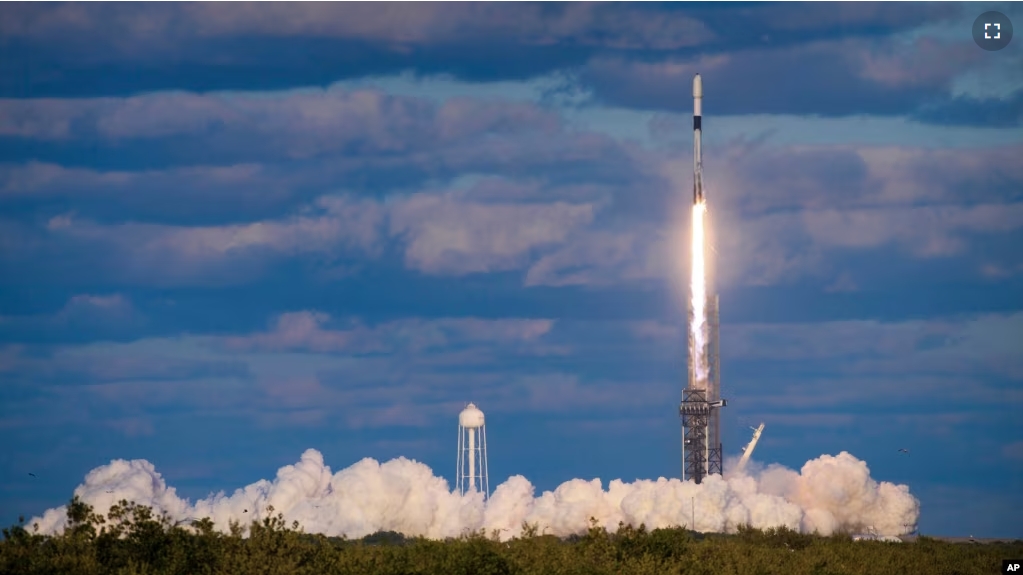South Korea has created a new national space agency to increase its capabilities and is aiming for a future Mars landing.
President Yoon Suk Yeol recently announced the establishment of the Korea Aerospace Administration (KASA). He said the country plans to spend about $70 billion on future space exploration.
“I have always believed that there is an infinite dream and future in outer space,” Yoon said. The South Korean leader added that the agency would seek “to land a homegrown probe on the moon by 2032 and plant the (South Korean flag) on Mars by 2045.”
South Korean space officials say the newly formed agency will aim to establish better cooperation than in the past, when different government ministries were involved in space activities. All space efforts are now to be developed under the KASA.

South Korea became the seventh country to own an indigenous space launch rocket. Last May, that vehicle, called Nuri, successfully launched a large satellite into orbit. Additional Nuri rocket launches are planned. One is set for the second half of 2025.
In the next three years, South Korea plans at least three more space launches. It also aims to launch several military satellites.
A KASA statement said the agency is modeled after the American space agency NASA. It said KASA would act as an “aerospace control tower,” to oversee space policy, satellite development and exploration missions.
Planned cooperative projects include expanding South Korea’s involvement in Artemis 3, NASA’s planned effort to put astronauts back on the moon by 2026. Research and development at KASA will be led by John Lee, who spent 30 years with NASA.
Yoon said the country’s space development budget would increase by $1.1 billion by 2027. That is double the current space budget.
KASA will be headquartered in the city of Sacheon, in South Korea’s far south. Yoon noted the government’s plan to create the “Toulouse of Asia” in Sacheon. He was speaking about the southwestern French city of Toulouse, which developed into a European space capital because Airbus is headquartered there.
KASA’s planned moon landing in 2032 will be a joint project with Hanwha Aerospace, South Korea’s largest defense and aerospace company.
Roh Kyung-won is deputy administrator of KASA. He told the French news agency AFP, “Our aim is also to support the private sector in space missions as extensively as we can.”

One of the agency’s first projects will involve a cooperation with Perigee Aerospace. The newly formed South Korean space company will aim to test a space launch vehicle from South Korea’s southern Jeju Island as early as next month.
International space experts say Yoon’s announcement demonstrates the increasing efforts that Asian nations are putting into space programs for practical reasons. These include perfecting independent rocket technology and strengthening national pride.
China has been heavily developing its space program and exploration missions in recent years. The country has successfully launched heavy-lift rockets, including the Long March 5. It has also established its Tiangong space station, sent unmanned moon probes and launched its Zhurong exploring vehicle, which reached Mars in 2021.
Japan has also increased its national space activities. In January, it became the fifth nation to place a lander on the moon. Japan also plans to send an explorer, or rover, to Mars.
And last year, India became the fourth country to land on the moon.
I’m Bryan Lynn
Bryan Lynn wrote this story for VOA Learning English, based on reports from Reuters and Agence France-Presse.
Quiz – South Korea Establishes Space Agency, Targets Mars Landing

Start the Quiz to find out
_________________________________________
Words in This Story
infinite – adj. extremely large or great
probe – n. a vehicle used in space exploration
indigenous – adj. having always lived or existed in a place
aerospace – n. the design and production of aircraft
mission – n. an important project or trip, especially involving space travel
extensive – adj. large in amount or size
practical – adj. relating to real situations or actions and not to thoughts or ideas
